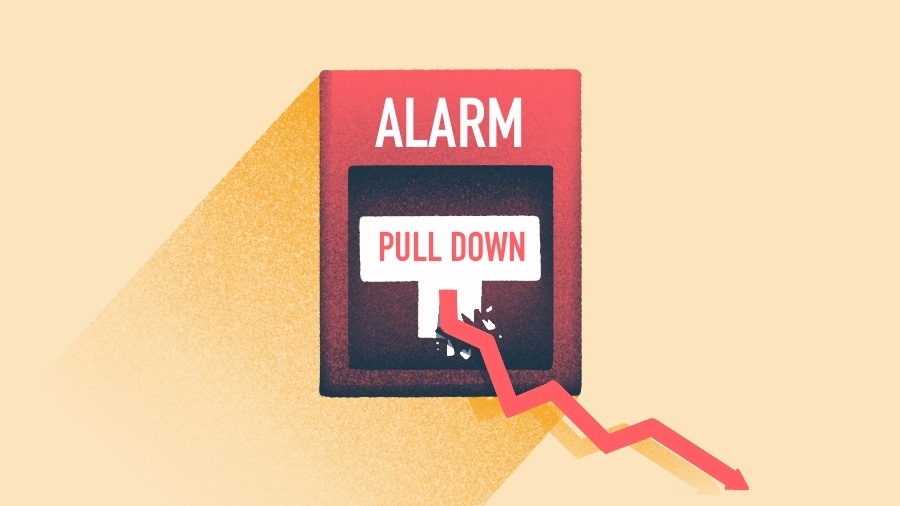By Bradley Tusk
Even putting aside the collapse of the economy, the crypto winter, the lack of venture activity, and all of the ways the world is in chaos and crisis, a lot happened in tech in 2022, much of it not particularly good.
While billions of words have been spent dissecting the fall of Sam Bankman-Fried and Elizabeth Holmes, the collapse of crypto, Elon Musk’s purchase of Twitter, and more, and given that none of us want to make the same mistakes, it’s worth taking stock of what we actually learned from each debacle.
Search less. Close more.
Grow your revenue with all-in-one prospecting solutions powered by the leader in private-company data.
Cerebral: The obvious lesson is don’t use TikTok and influencers if you’re prescribing something as serious as Adderall and don’t want to be seen as a pill mill. The playbook here is one we’ve always been wary of and hope to not see again: huge marketing spend to fuel explosive patient growth before the clinical infrastructure has been stressed-tested and validated. The stakes obviously get higher when you’re dealing with a controlled substance prone to abuse. But the intense media and regulator fallout from Cerebral is not just a problem for one company or even one market segment. The value proposition of digital health rose exponentially during COVID, but given how new the sector is, every time one digital health company suffers a major crisis, it impacts the view of regulators everywhere about the entire industry and threatens the progress made. Just keeping your head down isn’t the right call. It’s realizing that reactive regulation poses an existential risk to all digital health companies, and proactively showing why a bad actor is an isolated incident and not representative of the industry as a whole.
Sam Bankman-Fried/FTX: The obvious lesson is clear: don’t misuse customer money and don’t run a multibillion-dollar company like a fantasy football league. But there’s another: We need to stop this cycle of constantly building people up and then tearing them down. The tech world especially is guilty of anointing someone as the savior. Let’s stop creating false prophets. People are complicated. They’re both good and bad, usually at the same time. And they always screw something up. There’d be a lot less idolatry and disappointment if we recognized that.
Elizabeth Holmes/Theranos: The obvious lesson is don’t commit fraud. But the other is that we as VCs need to be more mindful of the situation where a young founder has an idea, we invest in that idea, they try to turn it into reality, they show some progress but not enough, we pressure them for results, they then start shading the truth so they’re not found out, and it turns into fraud. It’s being more aware of the indirect message of what a founder is hearing in board meetings or check-in calls. It’s recognizing that being wrapped up in another Theranos is far worse than a company growing a little less quickly.
Crypto Regulation/Web3: The obvious lesson from the tumultuous past year in crypto is that pro-consumer and pro-innovation regulation is needed. I don’t think any serious people in the crypto industry feel differently. But it’s also important to realize that while 99% of crypto investors are not true believers in a sovereignless currency, the general public is still susceptible to scams, fraud and a lack of transparency. In addition to creating a new regulatory framework for crypto, policymakers should clearly distinguish between crypto and other uses of Web3/blockchain that are either already regulated or don’t need to be. Without publicly drawing very clear distinctions, we risk the baby being thrown out with the bath water by consumers, corporate partners and regulators (a ratings agency for tokens would also help).
Twitter: Don’t make multibillion-dollar financial decisions based on getting attention. Elon Musk bought Twitter because he wants us to talk about him constantly, and we do. All the time. But it also cost him $44 billion. And while he deserves the benefit of the doubt when it comes to making money, so far, he has not demonstrated any ideas that would save Twitter. Can he still pay the rent even if he loses his entire investment? Sure. But his purchase of Twitter is a perfect example of the danger Twitter poses: Everyone’s decisions are based on retweets and likes and dopamine hits rather than thought and logic. It’s a bad way to live.
By definition, many of the industries that startups tackle are inherently riskier and are operating often without much — or any — regulatory guidance. But that doesn’t mean they have to lead with their chin or make obvious and avoidable mistakes. Hopefully the challenges and lessons of 2022 helps make that easier to figure out.
Bradley Tusk is a venture capitalist, political strategist, philanthropist and writer. He is a co-founder and managing partner at Tusk Venture Partners, the world’s first venture capital fund that invests solely in early-stage startups in highly regulated industries; the founder of political consulting firm Tusk Strategies; and the co-founder and chairman of the Ivory Gaming Acquisition Corp., a publicly traded company on the Nasdaq.
Illustration: Dom Guzman

Stay up to date with recent funding rounds, acquisitions, and more with the Crunchbase Daily.







![Illustration of a man sitting on a huge pile o' money. [Dom Guzman]](https://news.crunchbase.com/wp-content/uploads/Giant_Funding-300x168.jpg)

67.1K Followers